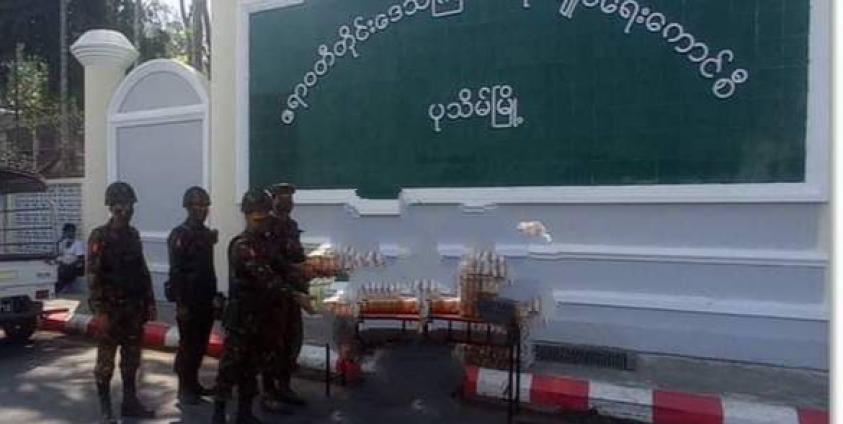The Ayeyarwady Region Military Council, under the Junta’s Southwestern Command, has been trying to bolster its military role by expanding its recruitment of civilians both as militias and also by mobilizing civilian administrators as a military reserve.
According to sources close to the administration departments in the region, they have been recruiting young individuals from orphanages and those living on the streets, into the military. They are also been establishing and arming Pyu Saw Htee militias in local wards and villages. Since the first week of September, civilian personnel have been forced to sign a declaration committing to undergo military training, and serve in the military if called upon.
"According to the directives from higher authorities, civil department personnel are required to attend military training in Phaung Gyi. If the situation demands, they may be called upon for military service. It has been communicated that promotions will be considered upon the signing of the agreement," shared a source familiar with the Ayeyarwady Region General Administration Department.
According to a retired major, the military units under the Junta had not been fully staffed in the past, and since the coup d'état, there has been a notable decline in individuals willing to enlist in the military. In addition, many troops have opted to join the Civil Disobedience Movement (CDM), and there has been an increase in casualties during battles and defections. Consequently, the Military Council is facing a pressing need for soldiers who are willing to serve on the frontlines and engage in combat.
Residents reported that the Military Council initiated a propaganda campaign in various townships within the Ayeyarwady Region, beginning in the last week of July and continuing until early September.
Residents have been forbidden from having any contact with CRPH, NUG, and PDF, but rather to inform the authorities if they come across any such information.
"In every ward and village, an individual is appointed to lead a military unit. These appointed leaders are provided with militia uniforms. During military operations, each leader in charge is responsible for organizing five individuals. Subsequently, those who are organized are expected to continue the cycle by organizing another set of five people," detailed a 100-house-group elder.
In July and August, the Military Council enlisted civil service personnel in various regions and states, including Mandalay Region and Shan State, to participate in military training and serve in the armed forces.







